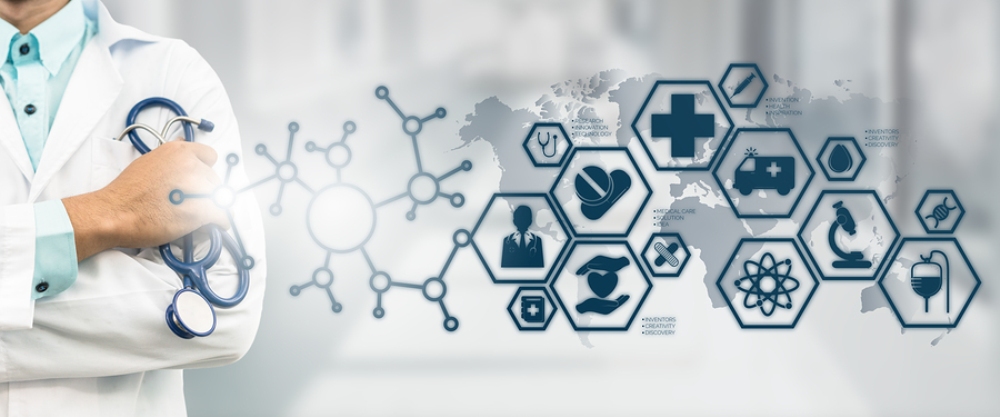
We are on the cusp of massive changes in medicine and health care. They are inexorable, with many stakeholders: patients, healthcare professionals, researchers, medical students, and consumers. In this article, free essay writers sat down with Dr Bertalan Mesko, author of The Guide to the Future of Medicine: Technology and the Human Touch, to explore how technological innovation will affect the future of medicine. Mesko identified 11 major trends.
1. Gamification of health.
Games are an integral part of our lives; they surround us from all sides, but in the future, they will help us do more than kill time. Adding a gaming component to health monitoring apps will help motivate patients to collect data and make informed decisions that impact their health daily. Mesko says more than 50 percent of patients with chronic conditions do not follow doctors' orders. Gamification will create an environment in which it is more difficult for patients to deviate from their doctor's prescribed course.
2. Empowering patients
Healthcare is moving beyond clinics, moving toward patient self-knowledge and empowerment. Many people use the internet to recognize symptoms and determine a possible diagnosis. Common sense would discourage such activities when access to qualified health professionals is possible, but doctors cannot forbid patients from using the Internet to seek information.
We shouldn't oppose this trend; it's better to steer it in the right direction. New technology will finally help medical professionals to focus on treating the patient rather than wasting time providing and explaining this or that information. Doctors can do what they do best - deliver care using their knowledge. As Dr. Mesko says, "Health care will not get much further if health care providers forbid patients to help themselves."
3. telemedicine and remote care
Thanks to innovative technology, doctors can keep in touch with patients being treated at home or under observation. This will save not only time but also money. Autonomous robotic solutions already exist to monitor the patient's condition before, during, and after procedures.
4. Rethinking medical education
Medical schools will train doctors to deal with e-patients and high technology. Specialist training is time-consuming, and the practices students learn must be updated by graduation. Textbooks need to be replaced by digital classrooms to enable communication between students and medical practitioners and to provide access to up-to-date information and resources.
5. Surgical and anthropomorphic robots
Today's robots significantly increase surgeons' capabilities; they can perform operations with greater precision and less aggressive intervention. Robots will always partially replace humans in operating theatres, but doctors will use them more frequently.
6. Genomics and personalized medicine
In the future, DNA analysis will become a standard procedure for making diagnoses and prescribing treatments. In this way, doctors can ensure that medication acts correctly on a particular patient, considering the individual characteristics of his or her body. Mesko says it will "detect disease like we see accurate GPS coordinates.
7. Wearable sensors
Modern technology makes it possible to measure critical medical parameters inexpensively and conveniently. Miniature wearable sensors collect data without distracting patients from their daily activities, allowing for more detailed statistics. One way to manage this data is through electronic wearables connected to the necessary sensors.
8. Medical tricorders and portable diagnostics
The fictional gadget from the sci-fi series Star Trek is about to become a reality. There will no longer be a need to visit clinics for various diagnostic procedures - everything can be done with portable devices right from home. "The smartphone will become the center of medicine of the future, acting as a health dashboard," states Dr Mesko.
9. DIY biotechnology
Affordable technology and the DIY spirit create a new generation of engineers and scientists ready for the most daring research. Bio-labs are springing up worldwide, bringing together inventors, enthusiasts, and those who love experimentation and discovery. Innovations in biotechnology have the potential to make breakthroughs and fundamentally change the medicine of the future.
10. The 3D printing revolution
3D printers can be used to create medical instruments, prosthetics, and even drugs. Printers also play a key role in regenerative medicine, helping specialists create blood vessel tissue, bone, heart valves, cartilage, artificial skin, and even organs. With increasing availability and open development, 3D printing applications can bring many benefits.
11. mechanized exoskeletons and endoprosthetic
Exoskeleton suits would allow paralyzed people to walk again. Increasing the accuracy of the servos and recreating sensitivity could enable the prosthesis to communicate with the brain in real-time. In the meantime, says Dr Mesko, "the bigger challenge for the manufacturers of such things is to create devices that can replicate the complex movements of a person's arms and legs exactly.